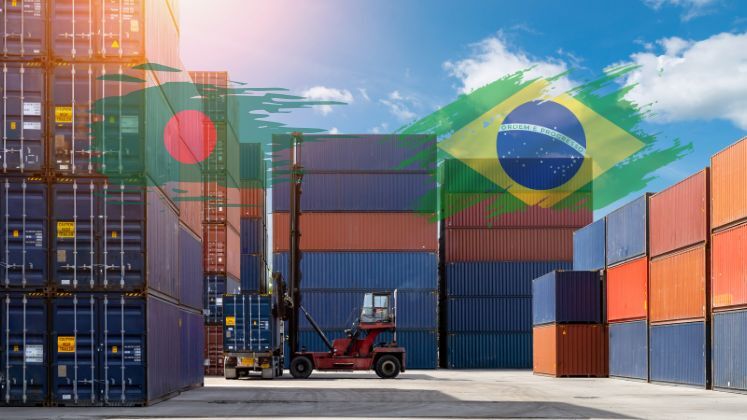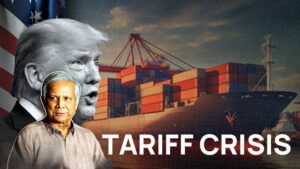Bangladesh’s economic engagement with Brazil is strengthening as both countries seek to expand bilateral trade, according to diplomatic and trade sources.
Data from the Export Promotion Bureau (EPB) shows that Bangladesh shipped goods worth US $ 187 million to Brazil in the 2024-25 fiscal year, up 26% from US $ 147 million in 2023-24. In July 2025 alone, exports reached US $ 16 million. Exports have shown a steady increase over the past few years, rising from US $ 109.2 million in 2021-22 to US $ 175 million in 2022-23.
Readymade garments remain Bangladesh’s primary exports to Brazil, including jerseys, pullovers, cardigans, shirts, suits, jackets, trousers, and shorts. The surge in exports to Brazil in 2022-23, nearly 60% higher than the previous year, positioned the South American nation as one of Bangladesh’s fastest-growing markets.
By contrast, Brazil’s exports to Bangladesh are significantly larger. In 2021-22, Brazilian shipments to Bangladesh totaled US $ 2.24 billion, primarily cane sugar, raw cotton, and soybeans. This figure rose to US $ 2.66 billion in 2023-24, up from US $ 2.59 billion in 2022-23. Bangladesh Bank data indicates that Brazil’s exports continue to grow, climbing from US $ 556.6 million in January–March 2024 to US $ 757.9 million in the same period of 2025.
Brazilian Ambassador to Bangladesh Paulo Fernandos Dias Feres emphasised Brazil’s interest in deepening trade with Bangladesh, calling the country a “new economic giant” in South Asia. Dhaka-based officials also highlighted the government’s push to strengthen ties with Latin American economies, with Brazil being a key focus.
Global trade shifts are further encouraging this partnership. Following U.S. tariffs of up to 35% on Bangladeshi goods—later negotiated down to 20%—Bangladesh is increasingly exploring alternative markets like Brazil. According to IMF projections, Brazil’s GDP is expected to reach US $ 2.13 trillion in 2025, potentially surpassing Canada, and rise to US $ 2.47 trillion by 2026, making it the world’s eighth-largest economy.
Former BGMEA vice-president Shahidullah Azim urged Bangladesh to capitalise on Brazil’s growing demand for textiles and apparel. “Brazil imported textiles and clothing worth US $ 5.9 billion in 2022, while Bangladesh contributed US $ 150.6 million. With our competitive edge, we can expand further,” he said. Azim also recommended pursuing free trade agreements with major markets, including Brazil, especially after Bangladesh graduates from LDC status in 2026, which could expose exports to higher tariffs.
Officials noted that Brazil, a leading global cotton producer, could become a strategic supplier for Bangladesh, the world’s second-largest cotton importer. At the same time, Bangladesh could broaden its export range by promoting jute, leather, and other non-traditional products to reduce the trade deficit.
The Bangladesh diaspora in Brazil, numbering around 7,000–8,000, is also growing, fostering stronger people-to-people connections. Analysts suggest that these economic and demographic ties could lay the foundation for deeper bilateral cooperation between Dhaka and Brasilia.







